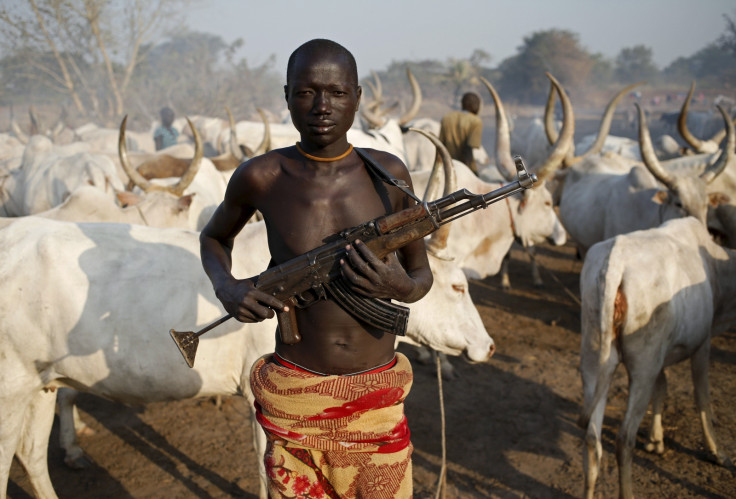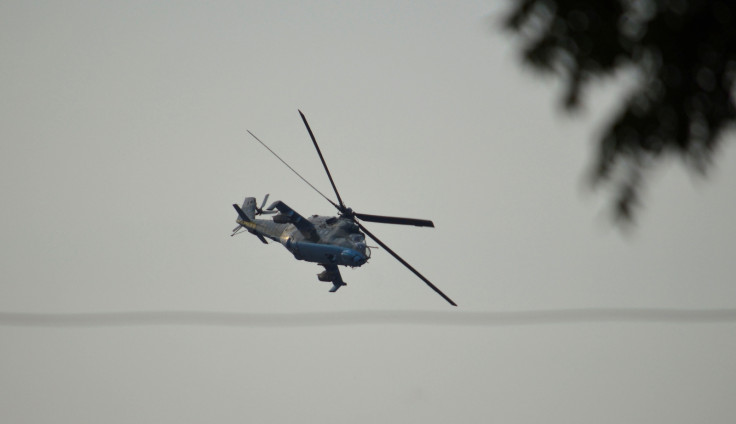South Sudan's corrupt elite have driven a debt-free and oil-rich country to ruin
In just five years the young African country has gone from prosperity to poverty.

South Sudan gained independence in 2011 as a middle-income country. It was debt-free and enjoyed per capita spending many times greater than any of its East African neighbours. But 98% of government revenue was from oil, and therein lay the seeds of disaster.
The explanation of South Sudan's precipitous collapse is that the elite − and especially the army − were living beyond their means. Five years ago, the country was selling 300,000 barrels of oil per day at about $100 a barrel. Today's production is barely half of that, and once it pays pipeline tariffs plus interest on debts to the oil companies, the government gets almost nothing.
This collapse started early: just six months after independence, in January 2012, the government shut down its entire oil production in a dispute with (northern) Sudan over pipeline charges, which led to a brief border war three months later. When oil production re-started in mid-2013, the country was deep in an economic crisis from which it has not recovered.
At independence, more than half of the total budget was spent on the army, with salaries and allowances for the bloated military as much as 80% of that bill. The army was essentially a constellation of ethnic militias, each loyal to its particular commander-cum-paymaster. It was exempt from austerity measures imposed after the oil shutdown − not because it was needed for national defence, but because the 700 generals had sufficient clout to hold President Salva Kiir to ransom, with ill-concealed threats should they not be paid.
President Kiir's strategy for remaining on top of his diverse, fractious and quarrelsome generals, and other members of a kleptocratic elite, was a 'big tent' policy: he paid them all off by allowing them to steal from state coffers. Vast sums of oil money disappeared into private pockets, or were recycled lower down the food chain into patronage payoffs.
The smaller-scale symptoms of the crisis are just as alarming as the organised fighting.
When the funds dried up, Kiir could no longer manage political rivalries, and couldn't hold off the challenge of his own vice president, Riek Machar, for leadership of the ruling Sudan People's Liberation Movement (SPLM), which automatically translates into the presidency of the country. And when the crisis erupted in December 2013, the army split along ethnic lines.
After nearly two years of fighting and atrocities against the civilian population, the international community arm-twisted President Kiir and his rival Machar, now heading the SPLM-in-opposition, into signing a peace deal. The basic flaw of this agreement was that it returned the political situation to the status quo ante just before the outbreak of fighting. It did not solve the political crisis or resolve the question of who should lead the SPLM, merely postponing the date of elections to 2018.
It did not reconcile the opposing factions or create a depoliticised, professional army. Instead it placed the security of the capital city Juba jointly in the hands of the two deeply hostile forces. Neither did the peace deal offer any remedy for the economic crisis: inflation reaching 300%, the value of the South Sudanese pound dropping to a tenth of its prior value, civil servants' salaries remaining unpaid for months.

The promise of the August 2015 deal was a share-out of wealth and power among the elites. Underpinning it was the idea that President Kiir could return to his inclusive 'big tent' policy, bring Machar back as First Vice President, and keep the elites happy through letting them enrich themselves from the oil funds. Unfortunately the money just wasn't there. And as South Sudan went over the macroeconomic cliff, a crisis of governability loomed. When soldiers are unpaid, or when the value of a month's salary dwindles to a level that it can only feed a family for a day or two, unrest is inevitable. It is only a matter of time before a violent incident escalates.
Which is precisely what happened on 8 July, when Machar's bodyguards killed five soldiers. The army's chief of staff, General Paul Malong, who last year advocated pressing home the military advantage over the rebels rather than signing a peace deal, took the opportunity of this clash to deploy tanks and helicopter gunships to try to eliminate the SPLM-in-opposition troops stationed in the capital. South Sudan went back to war.
The long-suffering people of South Sudan need to have their own voices heard directly in the next peace process.
The smaller-scale symptoms of the crisis are just as alarming as the organised fighting. On every road, there are now checkpoints where soldiers extract bribes and other payments. Formerly mixed towns have become clusters of ethnic enclaves, each with its own community defence unit. One by one, the country's independent newspapers are closing down and seven journalists were killed last year, plus another reporter this month. Millions depend on food aid.
South Sudan's political system may be too deformed to be reformed. As presently constituted, it can only function either with a well-financed big man or a ruthless enforcer at the top. Kiir cannot expect any international donor to stump up the cash needed to run a political system based on graft and cronyism, and neither will investors have the confidence to pour money into the oil industry. And the country is too diverse and its communities too well armed for an old-style dictatorship to be possible, even if it were a morally acceptable option.
The South Sudanese ambassador to the United Nations, Akuei Bona Malwal, described the violence as part of his country's 'learning curve.' It's his job to put a brave face on disaster. But the learning curve surely needs to be that South Sudanese citizens can no longer afford a political elite whose greed, ambition and bellicosity have driven their country to ruin.
The long-suffering people of South Sudan need to have their own voices heard directly in the next peace process, so that they can find ways to bend that curve towards peace.
Alex de Waal is the Executive Director of the World Peace Foundation. His most recent book is The Real Politics of the Horn of Africa: Money, War and the Business of Power (Cambridge, Polity, 2015).
© Copyright IBTimes 2025. All rights reserved.





















